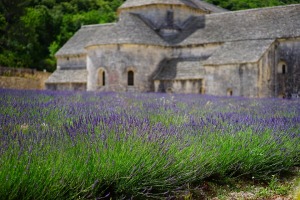
One of the primary virtues that Ibn Zafar believes a good leader should possess is the virtue of self-denial. In Arabic this word is زهد, or “renunciation” of worldly things. What he means by this is that no leader–or any other person, for that matter–can ever become truly great until he learns how to subordinate his desires in the face of higher purposes.
The following tale appears near the end of his treatise of political philosophy, the Sulwan al-Muta‘, a book we have discussed in several previous articles. The narrative is my own, but I have included bracketed direct quotes from Kechichian and Dekmejian’s excellent rendition of the Sulwan that compliment the flow of the story.
There was once a diligent herdsman who kept scrupulous care of a large number of cattle. The cattle were owned by various townspeople, but he was hired to take care of them. He was very much praised by the local villagers for his good work. Sometimes the herdsman liked to spend time relaxing in the lush fields near a monastery, once his work was done. Every so often, a monk from the monastery would come out, and the two would talk; and the herdsman never talked about anything but how hard his life was.
The monk eventually asked him why he did nothing but complain. The herdsman responded by saying that no one else was willing to do his difficult job, that he was trying to make his family and others happy, and that he did take some pride in doing a difficult job well. But the monk was not convinced. He asked the herdsman again why he continued to look after the welfare of others, rather than his own happiness. The monk demanded to know the purpose behind the herdsman’s diligence and application.
Finally, the herdsman told the monk this: “Yes, I put myself through a lot of trouble. But in return I can do what I want, I can go where I want, and I can make use of the meat and milk of my herd. I feel like I am managing my own property. This was what the herdsman said. The monk weighed these comments carefully, and rejoined, “This sounds like exactly the same thing that a monk once said, before he realized the error of his ways.”
The herdsman replied, “Tell me, brother, the story behind what you are saying.” And so the monk related the following tale.
There was once a monk who was on a pilgrimage; he encountered a decrepit monastery in a beautiful location and decided to remain there. There were some monks already on the grounds, but all in all the place was quite shabby. So the new pilgrim set about to help restore the monastery: he repaired the walls, cleaned out the garden and farmhouse, and dredged some of the canals that had become silted in and were needed for irrigation.

As a result of all this work, things began to look better, and the revenues of the monastery improved markedly. The monastery attracted new men, and almond trees, vineyards, olive trees, and other crops were planted. Eventually the monk began to collect a sizeable amount of money; but he was also neglecting his duties in tending to the needs of the community.
It is said that wealth is like water. He who does not open a gate to carry off its overflow, drowns in it.
The assistance we provide others through our wealth and influence is the amulet that preserves them both.
Other problems also arose. The other monks began to feel that the new pilgrim-monk was hoarding too much wealth in his own hands, and not sharing it as he should. Eventually, feelings ran high against him. The other monks told the pilgrim-monk to share his wealth; but he would not listen. “Why should I share with you what I have earned through my own diligence and effort?” The other monks responded by saying, “That is irrelevant. These riches belong to God, who permitted you to gain them in the first place. It is your duty to distribute some of this wealth in shares.”
But the pilgrim-monk, individualist that he was, was unmoved. “We will see whose wealth this is,” was his angry retort. So that night he ordered his servants to cut down the olive trees, almond groves, and vineyards. The other monks were horrified at discovering this. But the pilgrim-monk responded by saying that those things were his to do as he wished with them. The other monks beat him up and threw him out of the monastery, leaving him just as poor and alone as he had been when he first arrived there on pilgrimage.

And as the expelled monk walked away from the grounds of the monastery, he saw the devastation around him. He reflected on how he had wasted so much of his effort and his life. He began to realize how his evil behaviors had brought him to ruin. He said to himself: “Everything in this world is temporary. We do not really own things; we merely lease them, and our enjoyment of them is in some ways dependent on our links to others in our community. The world is like a bridge that can lead us to a good place, as long as we are careful when we cross it. But he who wastes his time in selfish frivolities, and does not cross the bridge properly, will fall off it. And once that happens, he is doomed.
“What you enjoy today, may corrupt you tomorrow. You think they belong to you, but they can be taken away more easily than you can imagine. Fortune likes to play games with us, and likes to remind us that She controls all things. The wise man will prepare himself to lose everything, so that he is not devastated if it happens. If one’s eyes are too focused on the material things of the world, he will be unable to leave them. This is done by practicing self-denial.”
And these were truly spoken words. Ibn Zafar said:
He who is accustomed to luxury will miss its loss more bitterly than he who does not cherish it.
If luxury is suddenly yanked away from such an individual, he will be filled with sorrow. Let him who seeks to accumulate wealth cultivate such virtues as may serve him for an escort as he prepares to meet his Creator.
Vulgarity destroys peace and ushers in sorrows.
This was the tale told to the herdsman. He recognized the truth and wisdom of what the monk had told him. So he then asked the monk what he thought he, the herdsman, should do with his cattle. The monk said, “I have removed the veil of ignorance that was covering your eyes, and preventing you from seeing the folly of your attitude. As I see it, you should return the cattle to their owners, and think of your own happiness. You should unburden yourself from these fixations; they are no more than parasites that prevent you from achieving fulfillment and joy.”
Ibn Zafar here concludes his tale. In the same theme of the tale, he writes the following lines:
You who speak evil of Fate, are you exempt from all blame, are you free from the weaknesses of human nature?
Do you possess an agreement that specifies your days, or are you not a fool deceived by the vanities of the world?
Awaken and remain forever in the world, you who have seen death, or tell me whether man has any power to defraud the sepulchre of its prey.
Where is Chosroes Anushirvan, the greatest among monarchs, gone?
Where did Sapor go before him, and those of the fair-skinned race, the gallant kings of the Romans?
Why are there no memorials for any one of them?…
Favorites of Fortune, kings, and lawgivers, are all buried within the tomb.
And their ashes are just as the withered leaf that is whirled about in the air by the wind.
Many leaders today have forgotten these lessons. They deny themselves nothing while demanding greater and greater sacrifices from others. Convinced of their own omnipotence, they arrogantly hoard more and more, while at the same time refusing to render justice to the people they are supposed to be serving. Unaware or unconcerned with the lessons of history or the rules of social conduct, they believe that no rules apply to them. These men, and the people who cheer them on, will learn in due course where such behavior leads.
__________________________
The new audio book of On Duties is now available.


You must be logged in to post a comment.